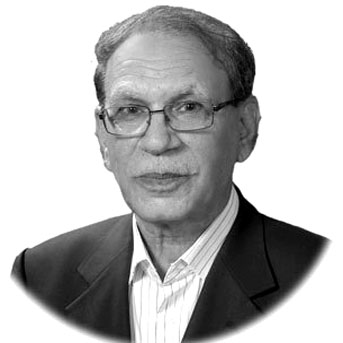Mohammad Jamil
THE United States and the Taliban resumed peace talks in the Qatari capital of Doha, a Taliban spokesman tweeted. “On Saturday talks between the Taliban and US started from where they stopped with Trump’s statement after an American soldier was killed in an attack,” Suhail Shaheen said. He added that Anas Haqqani, a former Taliban prisoner, who was released in a swap last month, participated in the talks as member of negotiation team. The announcement came more than a week after President Donald Trump made a surprise visit to US troops in Afghanistan and stated talks had restarted. He told troops that “the Taliban wants to make a deal. We’ll see if they want to make a deal. It’s got to be a real deal, but we’ll see. But they want to make a deal.” During the trip Trump also held a bilateral meeting with the President of Afghanistan, Ashraf Ghani.
On 6th December 2019, Washington resumed talks with the Taliban in Qatar, three months after President Donald Trump abruptly halted diplomatic efforts that could end America’s longest war. Now, the focus of discussion will be reduction of violence that leads to intra-Afghan negotiations and a ceasefire. In September 2019, the United States and the Taliban were on the verge of signing a deal that would have resulted in withdrawal of thousands of troops in return for security guarantees. It was also expected to pave the way towards direct talks between the Taliban and the Government in Kabul and, ultimately, a possible peace agreement after more than 18 years of war. But that same month, Trump had abruptly called the year-long effort “dead” and withdrew an invitation to the insurgents to join secret talks at his US retreat at Camp David after the killing of an American soldier.
“Ambassador Khalilzad will rejoin talks with the Taliban to discuss steps that could lead to intra-Afghan negotiations and a peaceful settlement of the war, specifically a reduction in violence that leads to a ceasefire,” the State Department said on Wednesday, as it announced the resumption of efforts to end the conflict. Washington had sought to seal a political deal with the Taliban ahead of September’s elections in Afghanistan; but that was not to be. Anyhow, on November 2, Afghanistan’s Independent Election Commission (IEC) announced that votes would be recounted in all of Afghanistan’s 34 provinces by November 14. But yet, another postponement of the results was announced, this time for indefinite period with no new target date set. Hence, there is many a slip betwixt cup and lips, as after Taliban reach an agreement with the US, many hurdles will have to be crossed in regard to intra-Afghan dialogue .
Initially, the results of the elections were due on October 19. Election Commissioner Awrang Zeb stated, “Our system and procedures are such that until the biometrically verified votes are not separated from the rest and until the clean votes are not determined, we will not be announcing any results.” The teams of both incumbent President Ashraf Ghani and his main rival, Abdullah Abdullah, have reported incidents of fraud to the Independent Electoral Commission for review. It is likely that when results are announced this time around, the same two candidates will encounter similar disagreements. Against the advice of the IEC, both candidates claimed that victory was imminent shortly after initial results became public. History is repeating, both indicated that they would not concede victory to the other candidate due to what they perceived to be flaws in this year’s electoral process.
Afghanistan’s presidential contenders in 2014 had signed an agreement to form unity government with former World Bank economist Ashraf Ghani as President and Abdullah Abdullah as Chief Executive Officer (CEO). Both of them had taken oath to end months-long standoff over a disputed runoff vote. Abdullah Abdullah had rejected the results in the runoff election, and had demanded audit and vote count. During the process of vote-recount and UN-supervised audit, he had even alleged fraud in the audit. Realizing that there could be turmoil and civil war in Afghanistan and also cajoling by the US, he declared that he would accept Ashraf Ghani as President. It was due to the efforts of the then US Secretary of State John Kerry, who persuaded both Ashraf Ghani and Abdullah Abdullah to accept US-backed compromise, and had warned Ashraf Ghani that if he did not agree with the formula, there could be reelection.
There have been quite a few rounds of US-Taliban talks in Doha and elsewhere; the first Afghan peace conference was held in Bhurban Murree in June 2019, which was reflective of Pakistan’s desire to have peace in Afghanistan. The conference was significant in view of the response and participation of leaders from different political parties of Afghanistan. Former Afghan warlord and leader of the Hezb-e-Islami, Gulbadin Hekmatyar, Ustad Atta Noor, Chairman Afghan High Peace Council and former Vice-President Karim Khalili, Second Deputy Chief Executive Officer Mohammad Mohaqiq as well as Uzbek leader and current Vice-President Rashid Dostum had attended the peace conference. In the past, Rashid Dostum and Hanif Atmar have been accusing Pakistan of supporting militants; but their participation and words of appreciation showed change of hearts and minds. Having that said, the world acknowledges the role played by Pakistan to bring peace in Afghanistan.
—The writer is a senior journalist based in Lahore.









